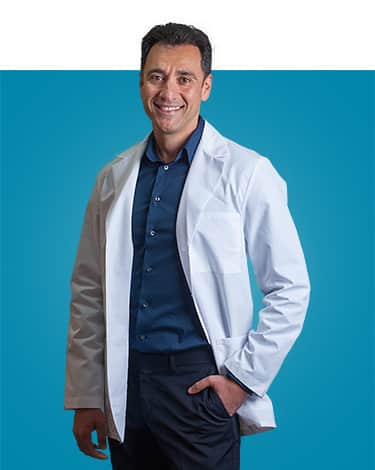I am excited to be back and writing about the topic that I have grown to be very passionate about. Ready for it? Sleep Apnea. “Boring” you would say, right? Not so fast, my friends. I have to be honest with you: I had zero knowledge on the topic of Sleep Apnea after graduating from dental school and even after practicing dentistry for almost 20 years. In fact, knowing what I know now, if I could only ask for one single change in Dental Schools’ curriculum (and believe me: there are more than just one change that I would like to see), I would add education on “Sleep Apnea” to every single Dental Program in the world.
As many of my patients know, I do take quite a bit time off to attend advanced continued education seminars. I obviously tend to participate in ones that I think I would enjoy and learn the most from. So, 2 years ago, after one of my good friends suddenly passed away in his sleep, I finally decided to heavily dive into research and scientific data on diagnosis and treatment of sleep breathing disorders, and Sleep Apnea in particular. I was very skeptical: I thought that I would have a hard time staying awake [pun not intended] researching and educating myself on Sleep Apnea. I could not have been more wrong. 30 minutes into my first seminar I started diagnosing (in my head of course) half of my family and quite a few patients of mine with some signs of Sleep Apnea. Falling asleep and even snoring in dental chair sound familiar? You know who you are J So, within last couple of years, not only me, but my entire staff at Clinton Dental Center have gone through extensive training on Diagnosis and Treatment of Sleep Apnea.
Many of our new and existing patients at Clinton Dental Center notice that we ask them to fill out what we call a “Sleep Questionnaire” form. I hate to fill out all medical/ health/ insurance forms in doctor’s offices as much as anyone else. Trust me on this one: this form is different. This form will help people like my mom and dad, who I was able to diagnose and treat, add many years of healthy living and enjoying their grandkids.
The number of people suffering from breathing problems in Southeast Michigan is downright staggering. One of the signs of Sleep Breathing Disorders is snoring. Snoring is not just a social nuisance; it is a serious health risk. Snoring occurs when the tongue partially blocks the airway when the patient sleeps on their back and sleep apnea occurs when the tongue completely blocks the airway. Both situations are harmful since the patient is deprived of oxygen.
Sleep Disorders Linked to Major Health Problems in Michigan
Cardiovascular disease is the number one cause of death in North America and patients who suffer from snoring and sleep apnea have higher incidence of heart attacks and strokes due to high blood pressure as a result of lack of oxygen.
Some patients actually stop breathing for 30 seconds or more, many times each night. These patients wake up several times at night gasping for breath. When they are deprived of oxygen they have problems falling asleep, wake up frequently at night, have morning headaches, memory loss, ear aches, grind their teeth at night, and find it difficult to concentrate.
Daytime fatigue is another sign of Sleep Apnea. It leads to an increase in industrial and traffic accidents. Many patients are prescribed CPAP units that consist of an air compressor that forces air up the nose in order to open the airway. While these are effective and necessary for patients with severe sleep apnea, the problem is that 80% of patients are non compliant after one year. Patients much prefer to wear oral appliances that reposition the lower jaw and move the tongue forward, thus opening the airway. Patient compliance with oral appliances is over 90%.
 Many people will agree that their bed partner’ snoring is bad for their relationship. Some couples even sleep in separate bedrooms. A CPAP unit or an oral appliance to prevent snoring is less expensive than a divorce and, in the long run, much better for your overall health. In my next blog I will discuss the main causes of Sleep Apnea and what should people do to educate themselves on what many of us in health profession call a “Silent killer”.
Many people will agree that their bed partner’ snoring is bad for their relationship. Some couples even sleep in separate bedrooms. A CPAP unit or an oral appliance to prevent snoring is less expensive than a divorce and, in the long run, much better for your overall health. In my next blog I will discuss the main causes of Sleep Apnea and what should people do to educate themselves on what many of us in health profession call a “Silent killer”.
And for now, yours, in good oral health,
Dr Roman Sadikoff.











